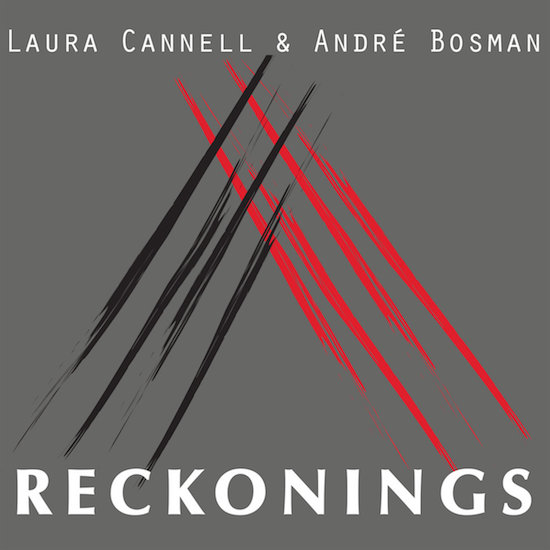Already the queen of improvised location violin, Laura Cannell has taken her work a stage further with a set of entrancing tracks conjured in response to place and to the elements. Cannell and her husband and longterm collaborator André Bosman recorded the six improvised pieces that make up Reckonings during a series of visits to the round-towered church of St Andrew’s in Raveningham Park, on the edge of the Norfolk Broads. The remote, marshy location is very much Cannell’s territory, with her previous albums rooted in the black East Anglian soil. Her most recent release, 2017’s Hunter, Huntress, Hawk was also recorded in a church called St Andrew’s, but in Suffolk rather than Norfolk, which represents quite a specialised way of doing things. The simple reason for Cannell’s choices of location, however, is that her music would not exist without these places.
Cannell’s violin sound, often using an overbow which sounds chords by wrapping across the strings, is entirely unmistakable. When she plays with Bosman the pair produce a complex, layered and expressive sound that is submerged in mud and marsh one moment, and airborne the next. Bosman uses a curved, medieval rebec bow and a battery-powered amplifier, and both metal and gut strings are involved. The two have never recorded their collaboration before, but have clearly been playing together for years. Their improvisation is assured and highly subtle. They weave around and around one another, creating waves of tension, opposition, release and togetherness, summoning pagan ghosts of Saxons from under the consecrated skin of the place. Their soundscape is entirely distinctive, and could only have been made by these two people, at this time, in this location, but it is suffused with a powerful sense of all those who have come before.
Reckonings is a set of pieces made during short visits to the church, no more than half an hour each time, to improvise and record. They reflect the different seasons in which they were played, from the light pattering of sunlit notes on ‘Golden Lanes At Dusk’ to the troubled, wintery drone of ‘Reckonings’. For an album that lasts just over 30 minutes in total, Reckonings encompasses a remarkable range of music. The intensity of each track reflects the rigorous methods behind their creation; they incorporate the sounds of the building as much as the instruments played in it, from the rattling of heavy oak doors in the wind to the distortion of amplified strings reverberating off lime-washed stone walls.
The techniques Cannell and Bosman use are intriguing and compelling, but their test lies in the music that results. It sounds like nothing else – a maelstrom of emotions whipping around the apparently empty church, building to a high crescendo or dropping into a beautiful stillness. Reckonings sounds as though it has always been playing in this building, inaudible unless we adjust our frequency. Suddenly we are tuned into the protesting stones of St Andrew’s, the turbulent marshes, the bubbling dykes and the blissed-out Norfolk lanes. Reckonings is a work of pure expression, music that owes nothing to precedent and expectation and everything to musical openness and to immersion in the moment. It is becoming hard to imagine flatlands and flinty churches without also thinking of Cannell’s music playing as a soundtrack. Reckonings is the latest instalment in a body of work that grows in excitement and importance year-by-year, season-by-season.



